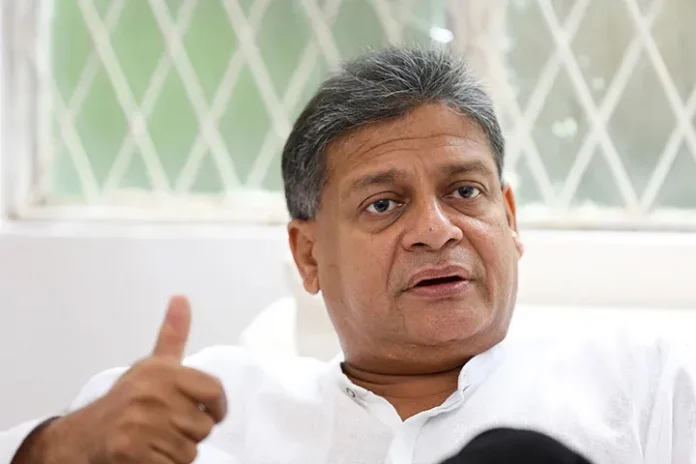As President Anura Kumara Dissanayake’s administration faces mounting criticism over its economic policies, Sarvajana Balaya leader Dilith Jayaweera has emerged as an unexpected voice of opposition, challenging what he calls the government’s “excessive taxation” while other opposition leaders remain preoccupied with political maneuvering.
The member of parliament, who has carved out a distinct position in Sri Lanka’s fractured politics, delivered a scathing assessment of the current administration’s approach to economic recovery during yesterday’s press conference. His critique centers on what he sees as a troubling continuity between the current government and its predecessor.
“President Dissanayake is just following the policies of Ranil Wickremesinghe,” Jayaweera declared, drawing parallels between the current administration’s tax strategy and that of the former president. “The excessive taxation is crippling our entrepreneurs.”
The businessman-turned-politician has been particularly vocal about the government’s digital tax initiative, which he has opposed since its inception. Jayaweera characterizes the levy as “a retaliatory tax against the US,” reflecting broader concerns about the measure’s impact on Sri Lanka’s relationship with international partners and its domestic technology sector.
While traditional opposition parties have struggled to present a unified front against the government, often becoming mired in internal disputes and leadership battles, Jayaweera has sought to position himself as a pragmatic alternative. His focus on economic policy rather than political theater has begun to resonate with segments of the business community and middle-class voters who feel underrepresented in the current political discourse.
Sources close to the Sarvajana Balaya leader indicate that he plans to intensify his campaign against what he views as the government’s misguided fiscal approach. These individuals, speaking on condition of anonymity, suggest that Jayaweera is preparing to mount a sustained challenge to the administration’s taxation policies, arguing that the government has failed to articulate a clear pathway to economic recovery.
The criticism comes at a sensitive time for the Dissanayake administration, which inherited a country still grappling with the aftermath of its worst economic crisis in decades. The government’s tax policies, defended by officials as necessary for revenue generation and fiscal stability, have faced pushback from various quarters, but Jayaweera’s systematic opposition has given these concerns a prominent political voice.
His approach contrasts sharply with that of other opposition figures, who have often focused on broader political attacks rather than specific policy alternatives. This strategic positioning has allowed Jayaweera to cultivate an image as a serious critic focused on substantive economic issues rather than partisan politics.
The digital tax controversy, in particular, has provided Jayaweera with a platform to demonstrate his opposition credentials. His early and consistent criticism of the measure has established him as a credible voice on technology policy, an increasingly important area as Sri Lanka seeks to modernize its economy.
As the domestic politics continues to evolve, Jayaweera’s ability to maintain his focus on economic policy while other opposition leaders engage in what he characterizes as “power games” may prove to be a significant advantage in building public support for his alternative vision of Sri Lanka’s economic future.
The coming months will test whether his approach can translate into broader political influence or whether the established patterns of Sri Lankan politics will reassert themselves.

